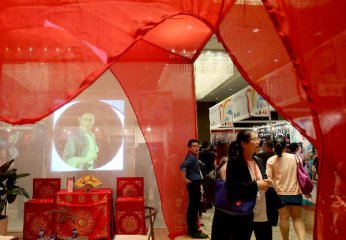 The Chinese economy's slowing to a six-year low in the latest quarter highlights the urgency of effective reforms to the economic system, but panic over the country's growth prospects is unnecessary.
The Chinese economy's slowing to a six-year low in the latest quarter highlights the urgency of effective reforms to the economic system, but panic over the country's growth prospects is unnecessary.
GDP grew 6.9 percent in the third quarter, lower than the 7-percent growth seen in each of the first two quarters, according to official data released on Monday.
It was, however, a shade higher than the popular market forecast of 6.8 percent, and generally in line with the official growth target of "around 7 percent" for 2015. A far cry from the double-digit growth seen in previous decades, the "new normal" of slower growth should not be a reason for doom and gloom.
Even as old growth drivers such as investment and exports lose steam, services and high-tech industries are fast emerging as new growth drivers, an indication that China's ambition to bring the economy onto a more sustainable track is coming to fruition. In times of tepid global recovery and subdued external demand, China has refrained from convenient mass stimulus or issuing excessive currency, but has been patiently optimizing its economic structure.
It is walking the tightrope -- balancing adequate growth that ensures enough jobs with structural reforms that more or less decide the country's economic future -- and is moving ahead with its own vision and tempo.
In the first seven months, high-tech industry grew 10.4 percent, 4.1 percentage points higher than the industrial sector in general. In the first half of the year, the services sector accounted for 49.5 percent of the country's GDP, 5.8 percentage points higher than the industrial sector.
Consumption remains robust. Retail sales of consumer goods grew 10.9 percent in September, higher than 10.8 percent for August. In the first three quarters, total sales rose 10.5 percent to 21.61 trillion yuan (3.4 trillion U.S. dollars).
In the first six months, consumption contributed 60 percent of economic growth. Considering the Chinese have a habit of saving instead of spending, there is still huge potential in encouraging consumption.
Quoting historian Arnold Toynbee and his belief that "challenge and response" is an important factor underpinning mankind's development, President Xi Jinping expressed confidence in China's economic future while acknowledging hardships ahead during an interview with Reuters over the weekend.
"The fundamentals of a steadily growing economy have remained unchanged. The new type of industrialization, IT application, urbanization and agricultural modernization that is in full swing has generated strong domestic demand and great potential for future growth. It has also made the economy more resilient and adaptable," Xi said.
"Going forward, we will deepen market-oriented financial reforms according to law to cultivate an open and transparent capital market that enjoys long-term, stable and sound development. We will improve risk management, stabilize market expectations and make it easier for private capital to operate in the financial sector to better support the real economy."
Under the government encouragement of innovation and entrepreneurship, China is witnessing a surge of creativity of its people. In the first three quarters, 30,000 new companies were registered everyday.
While the Chinese are keener to start their own businesses, more reforms are being introduced to improve the efficiency and quality of ossified state-owned enterprises.
Over the past 30 years, the world was awed by China's economic ascent. In the years to come, China can still be counted upon to power global growth as it irons out short-term economic wrinkles with reforms and people's creativity.






















Latest comments